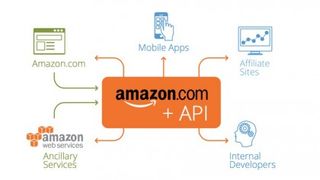Create new services and products for your business with APIs
APIs have become a very important consideration for businesses
Your API strategy
Using APIs in your business offers a number of advantages including the following:
1. Enhance an existing service or product
An API can help your products or services become more feature-rich. Mapping APIs could be used. APIs to connect e-commerce systems to databases that have rich product information are good examples here.
2. Personalise content
Your business needs to stand out from the crowd. One way to achieve this is to personalise your communications. Targeted emails and enhanced buyer histories can help your business present customers with other goods or services they might like based on their past purchases.
3. Connect to social media
One of the great advantages of using an API in this context is that it can connect your web-based business to social media feeds. You can show the number of likes, or tweets, using an API.
4. Streamline business processes
APIs don't have to be customer-facing. Your business could use APIs to improve its internal systems. Automatically adding new website visitors to an email mailing list, and using APIs to make shipment processing fast and seamless, are both good examples of powerful uses of APIs.
5. Expand your business
Amazon has shown that using affiliates can be a lucrative way to expand a sales force. Affiliate marketing can be handled by an API such as a widget you can include on your website. Using APIs in this way is as simple as cutting and pasting some code.

Update risks
Smaller enterprises that are basing large sections of their products or services on APIs need to be aware that they may have to update their products or services at regular intervals. API providers have a habit of making changes, which could break your business' web services for instance, so stay vigilant when developing your business around specific APIs.
Are you a pro? Subscribe to our newsletter
Sign up to the TechRadar Pro newsletter to get all the top news, opinion, features and guidance your business needs to succeed!
Madeline Parra, CEO and co-founder of Twizoo, warns: "If you are using an API and that source or feature is a critical part of your business, you need to consider what the risks would be if that service should cease to exist, or no longer be available to you.
"A lot of APIs are priced on a 'per call' basis, so as you increase use so does the cost. You need to ensure that you can scale that reliance in a sustainable way as your business grows."

Develop your own API?
One question that many businesses ask is whether they should create their own API. In response, Antony Chesworth, CEO and founder of EKM.com commented: "If you want your business to become a platform, then yes. All the largest and most successful companies are a platform… think Apple, Facebook, Google, etc. They all allow other third-parties to build on top of what they offer which adds value to their users."
"Obviously it depends on your business but even in the most non-techy businesses you could see how becoming a platform could expand the business. For example, take a greengrocer. If they built an API which allowed you to order fruit and veg, developers from around the world could integrate that into their apps and websites.
"Or using a fitness app which tracks what you are eating it could flash up a warning saying you haven't eaten much fruit this week, and click here to get a banana, which would then use the greengrocer's API to place the order and have it sent to the customer. Okay, it's a random example but it works!"
There is no denying that many of the most popular web and mobile services simply would not exist without APIs.
"The current trends in API-centric application development provide us with hints as to what the future may hold for small businesses," concluded Orion Cassetto, director of product marketing, Distil Networks. "The future will likely see more and more businesses turning to APIs to power their web and mobile applications, and to license content necessary to build out their businesses models."
Using APIs is now commonplace with many businesses leveraging their power and flexibility. For the small business community exploiting APIs offers an opportunity to build businesses on systems that can be connected together to create something new and engaging.
